‘Gratitude, Respect, and Compassion in Twin Peaks’ is now available on Audio, read by author John Bernardy, exclusively for our Patreon supporters. For just $3 a month you will have access to our full library of Audio content, plus three new uploads every week. To sign up visit our Patreon page: https://www.patreon.com/25YL
At first glance, it may seem like Twin Peaks Season 3 is all about darkness, but that’s like talking about a hole without talking about the donut. There’s a lot of light breaking through that darkness, if you look at the season as a whole (and I don’t just mean all those glorious lamps). As John Thorne and Andrew Grevas discussed here, there is a strong undercurrent of compassion in Season 3. I’ll take their compassion and raise them a theme of gratitude. Much like the elements of compassion, this pattern of gratitude has been mostly unexplored by the community at large, and I agree that it’s time to start talking about it.
I admit to being part of the problem, as up to now I’ve been focused on the characters who are stuck repeating behaviors while trapped inside trauma cycles. We only see most of these characters up to the point of making a breakthrough—I believe this includes Dale Cooper himself—so we don’t often get examples of people taking action once they’ve broken free. But there are enough examples to notice a pattern. The first thing that happens is—to paraphrase Mr. Rogers—they thank the people who loved them into being who they are.
As Mark Frost is all about taking personal responsibility for your actions, and David Lynch is all about promoting Transcendental Meditation to remove negativity, I would not be shocked if this is part of the message Lynch and Frost worked out during those first nine months when deciding what they wanted to say with this new Twin Peaks. Plot points may have diverged as they personally delivered this message in their own medium of expertise—Frost’s novels and Lynch’s filmmaking—but at the root of both interpretations is this: Shovel yourself out of your sh*t. Be grateful to the people who loved you into who you are. Respect the darker things that shaped you. Show compassion to people who are in the middle of their own darkness. This message is part of the foundation of Season 3’s story, and is even visible at a meta-level.
When two separate events occur simultaneously pertaining to the same object in inquiry, we must always pay strict attention
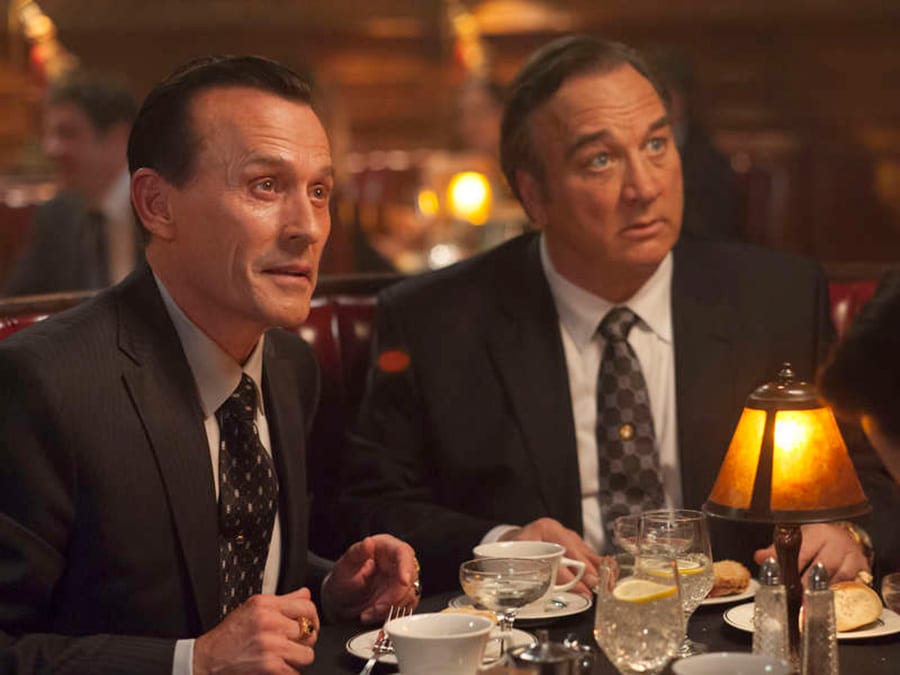 The easiest way to explain how gratitude is shown in Season 3 is by breaking down the closing scene of Part 11, where expressions of gratitude happen twice in a row. Firstly, the Mitchum brothers take Cooper/Dougie to a fancy restaurant as thanks for delivering them a check from Lucky 7 Insurance.
The easiest way to explain how gratitude is shown in Season 3 is by breaking down the closing scene of Part 11, where expressions of gratitude happen twice in a row. Firstly, the Mitchum brothers take Cooper/Dougie to a fancy restaurant as thanks for delivering them a check from Lucky 7 Insurance.
The check was written by Bushnell Mullins to make things right after Cooper/Dougie’s shady coworker Anthony Sinclair wrongly cooked the books so the Mitchums were not able to get a claim settlement they were entitled to. The anger from the injustice put the Mitchums in a bad place, as Supervisor Burns could attest. Yet the anger immediately dissipated when the error is corrected. The Mitchums felt listened to and validated, and they received enough money to lift away their pain point. This let light back in, and the first thing they did with this new positive energy was a show of gratitude—a communal meal experience around a dinner table. And this is when the character known only as Lady Slot-Addict shows up.
Characters who push through their darkness in a positive direction use proverbial golden shovels to fix themselves, and Lady Slot-Addict is no different. Her personal golden shovel is the money she won in Part 4 thanks to Cooper/Dougie’s help. This is the money she used to restart her life. And she got it from two jackpots (two coats!). The first time she won, she was distrustful, giving Cooper/Dougie the finger out of fear and lack of understanding. But for that second jackpot, she’d pushed through that fear. She was a believer. She was thankful, shouting to her Mr. Jackpots like he was some kind of angel. She was ready to use that compassion to lift the darkness of debt off her for good. She reacted from fear, then from gratitude.
Then somewhere between Parts 4 and 11, she dug herself out of her sh*t. And when she saw him again on the other side of her pain, she thanked him:
Cooper/Dougie notices the piano player change its tones to the Angelo Badalamenti song “Heartbreaking.”
Lady Slot-Addict enters the scene with a man.
Lady Slot-Addict: “Mr.Jackpots!” [to the man] “This is the man I told you about!”
LSA hugs Cooper/Dougie, then places a hand on his shoulder.
LSA: “I wanted to see you again. I’ve thought of you every day—What you did for me. You changed my life! This is my son, Denver. He’s back in my life again. I have a little dog. I have a house! I have my life back again. How can I ever thank you?”
LSA [Gesturing to the Mitchums]: “I hope you realize what a special person you have dining with you.” [Leans towards Mitchums] “He saved my life.”
Bradley Mitchum: “Saved us a lot, too.”
LSA [Kisses Cooper/Dougie on the cheek]: “Thank you, thank you, Mr. Jackpots. I’m so thankful I got a chance to say thank you again.”
Cooper/Dougie [As LSA touches him on the cheek]: “Thank you again.”
LSA kisses her hand and brings it to Cooper/Dougie’s cheek. She smiles and turns away, leaving with her son.
The Mitchums chuckle and make wordless, approving sounds. Then a cart arrives with a pie.
This scene contains everything you need to know about the importance of gratitude, compassion, and respect as foundational elements of Twin Peaks Season 3. I’ll be using this scene as the framework for the remainder of this essay.
She places her hand on his shoulder
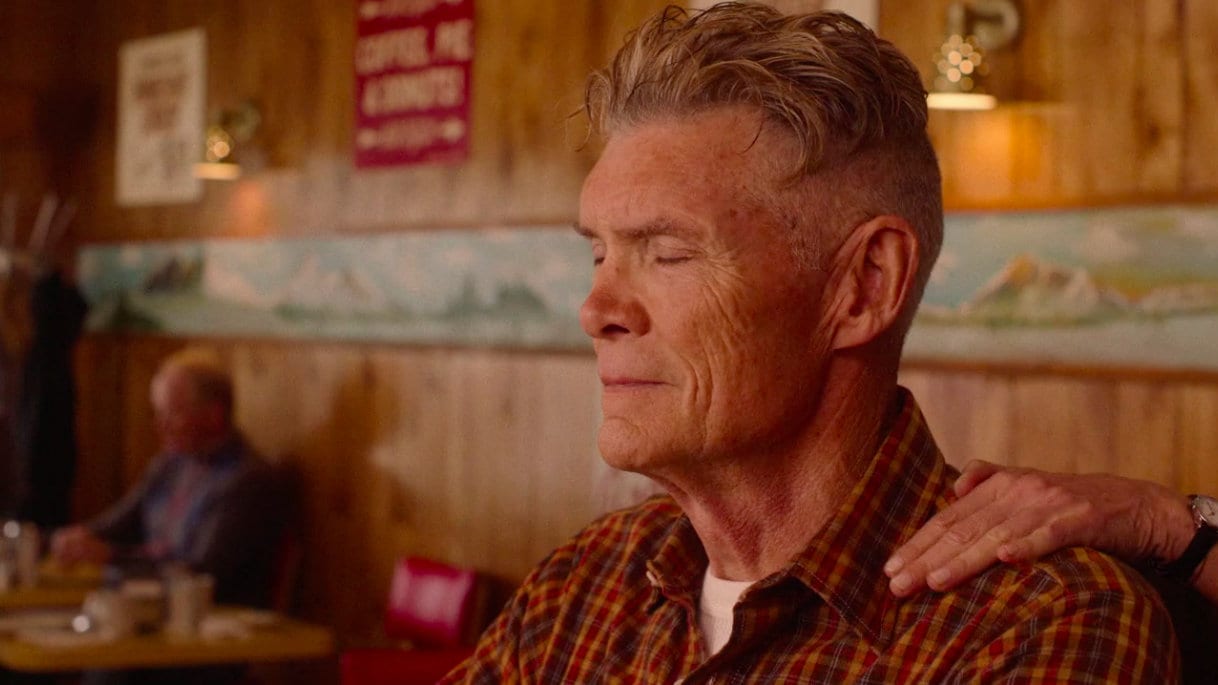 After greeting Cooper/Dougie, Lady Slot-Addict puts her hand on his shoulder. Before anything else, it physically establishes a connection between them. This move is all over Season 3, so much so that fans were trying to figure out if Lynch was just being handsy. Looking closer, it is undeniably a physical cue that is part of Lynch’s show language. Everyone from Carl Rodd to Norma puts their hand on someone’s shoulder at key moments.
After greeting Cooper/Dougie, Lady Slot-Addict puts her hand on his shoulder. Before anything else, it physically establishes a connection between them. This move is all over Season 3, so much so that fans were trying to figure out if Lynch was just being handsy. Looking closer, it is undeniably a physical cue that is part of Lynch’s show language. Everyone from Carl Rodd to Norma puts their hand on someone’s shoulder at key moments.
A hand on a shoulder is multifaceted but always a positive action. It acknowledges compassion towards someone’s pain (Gordon to Albert, saying “I’m worried about you”), says thank you (as here with Lady Slot-Addict), and shows support (Andy and Lucy behind their loving boy who proficiently operates from love). The hand on a shoulder allows one’s positive energy to help tune the other person’s energy to a more positive frequency, too. It is a way of sharing light rather than darkness.
You Changed My Life
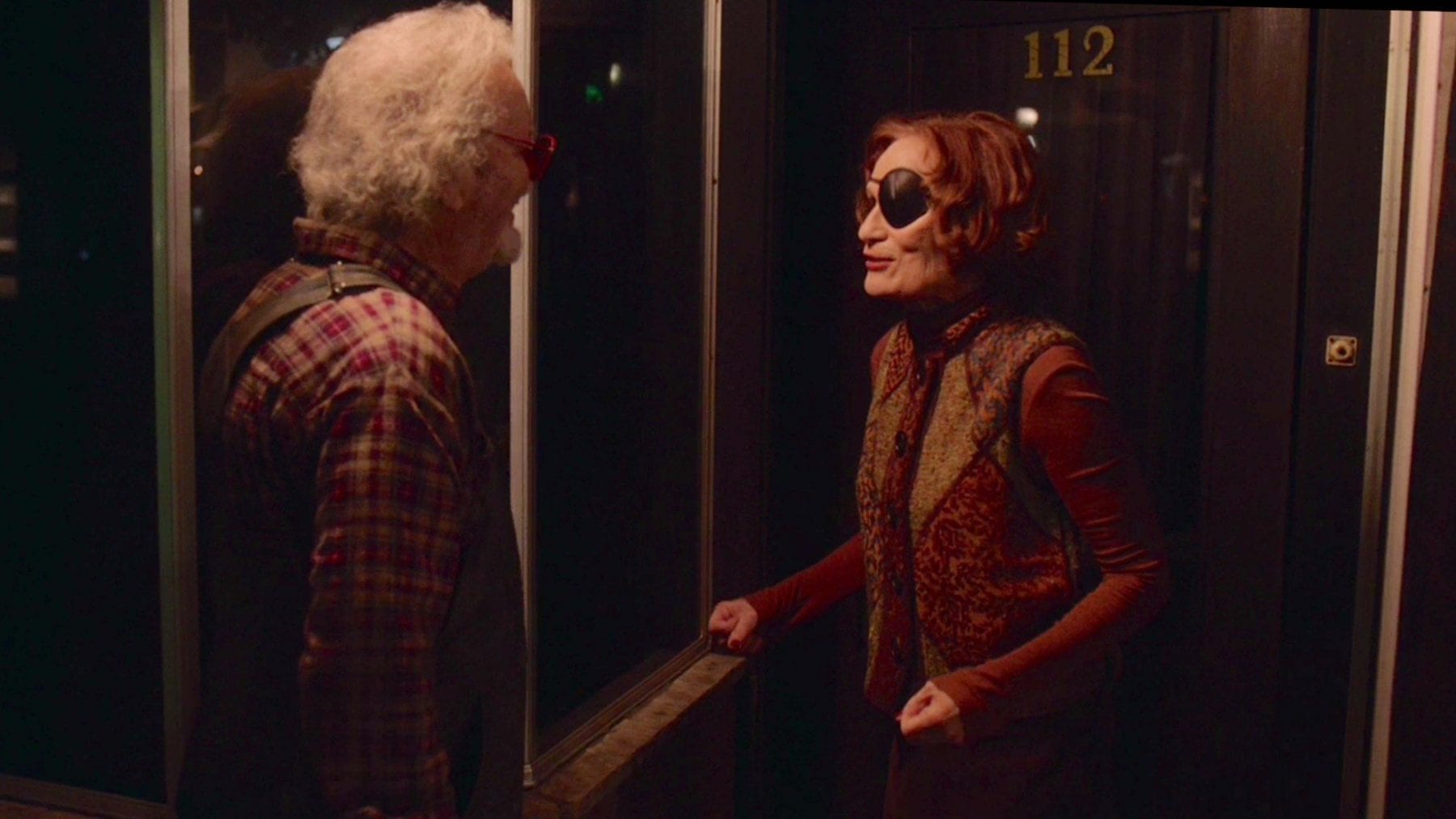
Lady Slot-Addict was able to show gratitude to Cooper/Dougie. Nadine was able to show gratitude to Dr. Jacoby outside her storefront for setting her on the path of personal responsibility. Cooper—after he wakes up (finally!)—thanks Janey-E and Sonny Jim for his time with them. We see so many moments like this littered through the season.
In a meta way, we’re also seeing Lynch reference his—and sometimes Frost’s—influences in subtle or overt homages, which are interspersed with imagery from both his past (say, the Lost Highway driving imagery for Mr. C) and Frost’s (the Vegas police force has similarities to Hill Street Blues). It’s as if to say, “What has influenced me in the past is all a part of me now, and I am thankful for it.”
Elements of Wizard of Oz can be seen in Season 3. Many fans called out moments of similarity to Kubrick’s style, Jacques Tati, visual connections to Cocteau’s Orpheus, Being There‘s strong connection to the characterization of Cooper/Dougie, and even moments reminiscent of the Coen Brothers, Tarantino (by way of Chantal and Hutch), or Mad Men and Breaking Bad. And then there’s the Gordon Cole scene in Billy Wilder’s Sunset Boulevard literally included in Part 15, as if to tell Wilder “thank you” for the use of the name, as well as all the influence that specific movie had on Lynch’s storytelling instincts.
I know less of the literary references Frost may be citing—besides always wanting to write in the Rashoman style of James A. Michener for a Twin Peaks book and finally doing so with The Secret History of Twin Peaks—but he’s the one who said the Mitchums were named as an homage to Robert Mitchum, so it’s officially a thing. Frost also likes making homages to the things he appreciates.
Some homages from Frost on display? Freddie Sykes—besides being a name of a character in The Wild Bunch—quotes the Beatles’ “A Day In The Life” when he’s telling James the story of how he got his green glove. Dr. Amp’s Great American Radio Show is inspired by Art Bell’s long-running Coast to Coast AM radio program of which Frost was a listener. There’s also a giant screen in the Barn of Part 13 reminiscent of The Prisoner, where the main character Number Six regains his memory and identity after giving himself an electric shock through a fork to a light socket in the episode “The Schizoid Man.”
The influences extend into Lynch’s Season 3 music selection as well. Most notably is the Platters’ “My Prayer” being prominently used right at moments before a seismic shift in plot or character. Why is this song particularly fitting? This was Number 1 on the charts when Elvis Presley was revealed to the unsuspecting public, making an impact on music and culture—really, the world—much like a bomb. David Lynch is such a gigantic Elvis fan that he chose to have the 30th Anniversary Celebration of Twin Peaks held at Graceland. After Elvis, everything was different. Lynch may not have used Elvis’ songs in Season 3, but he didn’t have to. Using the last moment before his debut is thematically relevant (Cooper telling Diane it could all be different on the other side), while being a high and subtle compliment to the King.
I wouldn’t be surprised at all by Lynch having similarly important personal associations with the included songs “Sleep Walkin’,” “Take Five,” “Green Onions,” or “Sharp Dressed Man.” We know for sure he considers Krzysztof Penderecki one of the greatest composers of all time, thus explaining Lynch’s desire to use “Threnedy to the Victims of Hiroshima” as a sound cue throughout the season.
As far as the Roadhouse bands, we know he has a huge connection to Trent Reznor from their Lost Highway days, and he’s taken bands like Au Revoir Simone under his wing. I believe he’s bringing them all to the Roadhouse because their music speaks to him, or it’s another way of bringing family together. You can grow light better with your family, who love you.
This is My Son, Denver. He’s Back in My Life Again
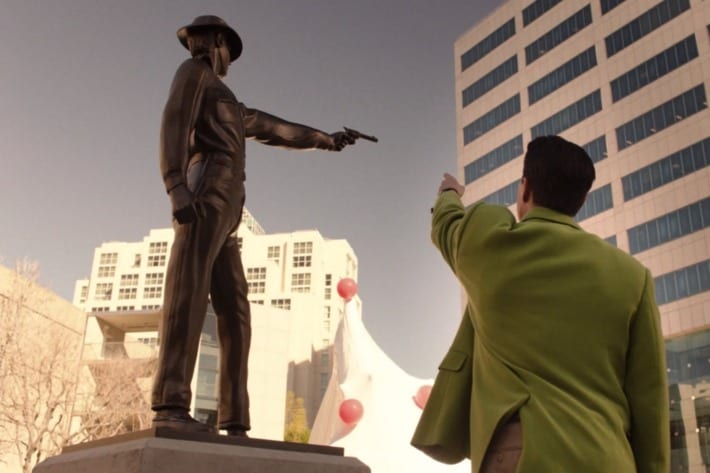 Family is a massively important connection in Twin Peaks. Lady Slot-Addict was in darkness alone, but is in the light with her son now. Cooper/Dougie’s family in Vegas brought him out of his in-between state. Bobby and Betty Briggs’ Part 9 scene about the Major brought about a path to Jack Rabbit’s Palace. Lucy and Andy’s scene with Wally helped them un-anchor from the past. Ben Horne specifically mentions the green bike from his father to contrast with Richard Horne’s vileness, explicitly connecting darkness to not having a father around. Not having enough family presence means you’re prone to darkness and/or can’t grow light.
Family is a massively important connection in Twin Peaks. Lady Slot-Addict was in darkness alone, but is in the light with her son now. Cooper/Dougie’s family in Vegas brought him out of his in-between state. Bobby and Betty Briggs’ Part 9 scene about the Major brought about a path to Jack Rabbit’s Palace. Lucy and Andy’s scene with Wally helped them un-anchor from the past. Ben Horne specifically mentions the green bike from his father to contrast with Richard Horne’s vileness, explicitly connecting darkness to not having a father around. Not having enough family presence means you’re prone to darkness and/or can’t grow light.
Frost and Lynch literally include themselves, their father and a son in Season 3. Frost is Cyril Pons, walking his dog and calling for help about Steven and Gersten in the woods. His son Travis is a boy playing catch and calling for help when Miriam pulls herself onto the street. His father Warren reprises his role as Doc Hayward, being called for help by Frank Truman about the last days of Dale Cooper in Twin Peaks.
Lynch is of course Gordon Cole. His son Riley goes into the bar asking if anyone saw Billy and also plays in the Roadhouse band Trouble. Lynch’s father appears in the form of the statue that Cooper/Dougie appears to be in awe of. Through example, Lynch and Frost are able to shine light through the darkness of their tale.
In addition to these literal family connections, we see Lynch thanking his family of artists he’s collected over the course of his career, creating a positive experience that Lynch repeatedly declared was “a beautiful thing.”
His wife, Emily Stofle, is the head of Ruth Davenport as well as one of the random characters in the Roadhouse booth. His muses are all here as well: Chrysta Bell, Naomi Watts, Laura Dern, Sheryl Lee.
Harry Dean Stanton reprised his role of Carl Rodd from Fire Walk With Me, though this time Lynch lets him be himself more and more. Lynch recorded his old friend singing a song with his guitar, just because he wanted that aspect of his longtime friend commemorated.
You could say the same for any scene with Miguel Ferrer, and that line Gordon says (“I’m worried about you”) seems to speak directly from Lynch to his friend, who was sick. And in a different way, Michael Horse’s artistic pursuits are showcased with Hawk’s living map. Lynch wants his collaborators to shine and he puts his respect for them into the film.
From a character perspective, a case can be made that Dale and Diane are just as equally Jeffrey and Sandy from Blue Velvet, so Lynch has brought those characters back into the fold, too. After all, Lynch told the actors in the From Z to A boxset that they’ve always been crazy about each other.
In a similar way of bringing back his past, David Lynch gave an homage to an early mentor, Bushnell Keeler, in the name of Bushnell Mullins. Cooper/Dougie’s boss stuck up for him and fought for positivity, so the ethos of Keeler is alive and well in modern Twin Peaks. Similarly, this goes too for how it felt to see Don Davis and Frank Silva on screen.
Sometimes cast inclusions seemed to be fixing things that didn’t happen in the past. I suspect Balthazar Getty’s inclusion here as Red was a form of mending fences, as he and Lynch reportedly did not get along during Lost Highway. Denise Bryson was included in this season because Lynch wanted to direct David Duchovny, an event that didn’t happen the first time around. Robert Forster was initially going to be the sheriff of Twin Peaks before the Pilot was shot, but had to back out. Naomi Watts and Laura Dern pleaded with Lynch once to make them sisters, and he did, however shoehorned it seems.
It’s not just actors that Lynch brought back into the fold. His crew is the same one he makes most of his movies with, and he made sure he got as many of them together as possible. Lynch wanted the experience of building something together with his extended family. A number of the crew members spoke about the experience like it was one last big hurrah, and every moment felt special.
It didn’t hurt that Lynch made a big deal when someone finished their contributions. An actor’s final scene, or the last time a crew member worked on a scene, warranted Lynch to call everyone together for a “Gather Round,” and then he’d say something like “That’s a wrap on Wally Brando!” (he called out actors as their characters). Then everyone would applaud, which felt like the proper level of pomp and circumstance to have a positive “thank you” and “good job” from the boss. That is a most excellent expression of gratitude.
And for those of the cast who helped bring us Twin Peaks but left us early, they get acknowledged and thanked too so we can “remember” them. At the end of every episode, there is a line in the credits for “In Memory Of.” This was for the likes of Frank Silva, Don Davis, Jack Nance, Catherine Coulson, and even Margaret Lanterman, Coulson and Lynch’s character that pre-dated Twin Peaks and helped make it become what it did.
I Have My Life Back Again
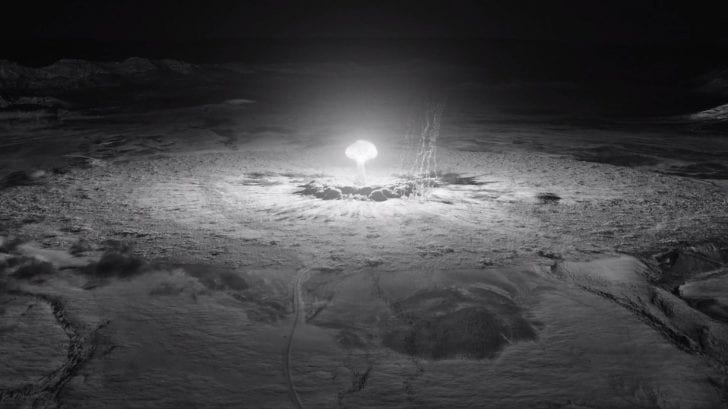 When Lady Slot-Addict said “I have my life back again,” it implies the time when she was lost in a darker place that led to her appearance in Part 3. Darker times are not something to be grateful for per se, but they are part of what shapes a person. You can say, “This is something that profoundly shaped me into who I am.” You do not have to show it gratitude as if it were a positive force, but you can show it respect.
When Lady Slot-Addict said “I have my life back again,” it implies the time when she was lost in a darker place that led to her appearance in Part 3. Darker times are not something to be grateful for per se, but they are part of what shapes a person. You can say, “This is something that profoundly shaped me into who I am.” You do not have to show it gratitude as if it were a positive force, but you can show it respect.
For Lynch and Frost, that is most easily explained by the inclusion of the nuclear bomb in Part 8. As Andrew Grevas explained eloquently here, both Lynch and Frost grew up during the time period of the bomb, and it profoundly shaped their worldview. The possibilities that came with the bomb were profoundly world-breaking, and you could say it was a form of ultimate negativity.
Similarly, the financial crash of 2008 was a darkness permeating the entire world all at once. It was born from financial institutions taking advantage of people and giving out too many too-good-to-be-true home loans, etc. All want, zero compassion. It’s the recent trauma that this generation needs to push through as a whole (yes, this was made in 2016). While the crash didn’t create the physical destruction of a bomb, it sure created a lot of never-lived-in ghost towns around Las Vegas.
There is negativity to push through everywhere in Season 3, shaping all its characters. Just looking at this darkness, you could easily get caught up in the critique about violence permeating everything, but it’s more than that. The negativity is a particular texture in Lynch’s paint set. It surely deserves respect, but the negativity is only an aspect of the full picture.
In its way, I also see Season 3 as a way for Lynch to push through a negative experience of his own: his previous experiences making Twin Peaks. To recap that, Lynch was forced to reveal the killer by ABC. He has said in the past that most of Season 2 is sh*t. When he was ready to make multiple Twin Peaks movies, Fire Walk With Me didn’t perform well enough for further funding. Twin Peaks became “dead as a doornail.” Now, this new undertaking pushed through that negativity and put things back in balance for Lynch. It’s once again “a beautiful thing.” Sounds to me Lynch’s actions here were doing the work to push through the negativity, same as Nadine and Lady Slot-Addict did. This is Lynch practicing what he’s preaching.
I hope you realize what a special person you have dining with you
 Once you celebrate the light and respect the darkness, you’re balanced enough to shovel your way through your darkness. And that leads to being able to offer compassion, first to yourself and then to others.
Once you celebrate the light and respect the darkness, you’re balanced enough to shovel your way through your darkness. And that leads to being able to offer compassion, first to yourself and then to others.
I’m reminded first of Janey-E’s monologue to the loan collectors pleading for compassion in a most impassioned way, but the clearest example in Season 3 of compassion in action is Carl Rodd. He had been places in FWWM. He wasn’t doing well at all and seemed constantly exhausted and agitated. Yet he pushed his way through to be nothing but help to his tenant who was selling blood, to the Hit and Run Mom in her time of need, and to Shelly when she needed a vehicle you can whistle for like magic. Carl puts his hands on shoulders better than anybody. He’d been in their shoes before. He made it out of that mindset but has nothing but compassion for those still in that state of stress.
Seen in action in a variety of ways, we get part of Lynch and Frost’s message: Everyone, in or out of their darkness, is worthy of respect. We should answer calls for help.
I’m so thankful I got a chance to say thank you again
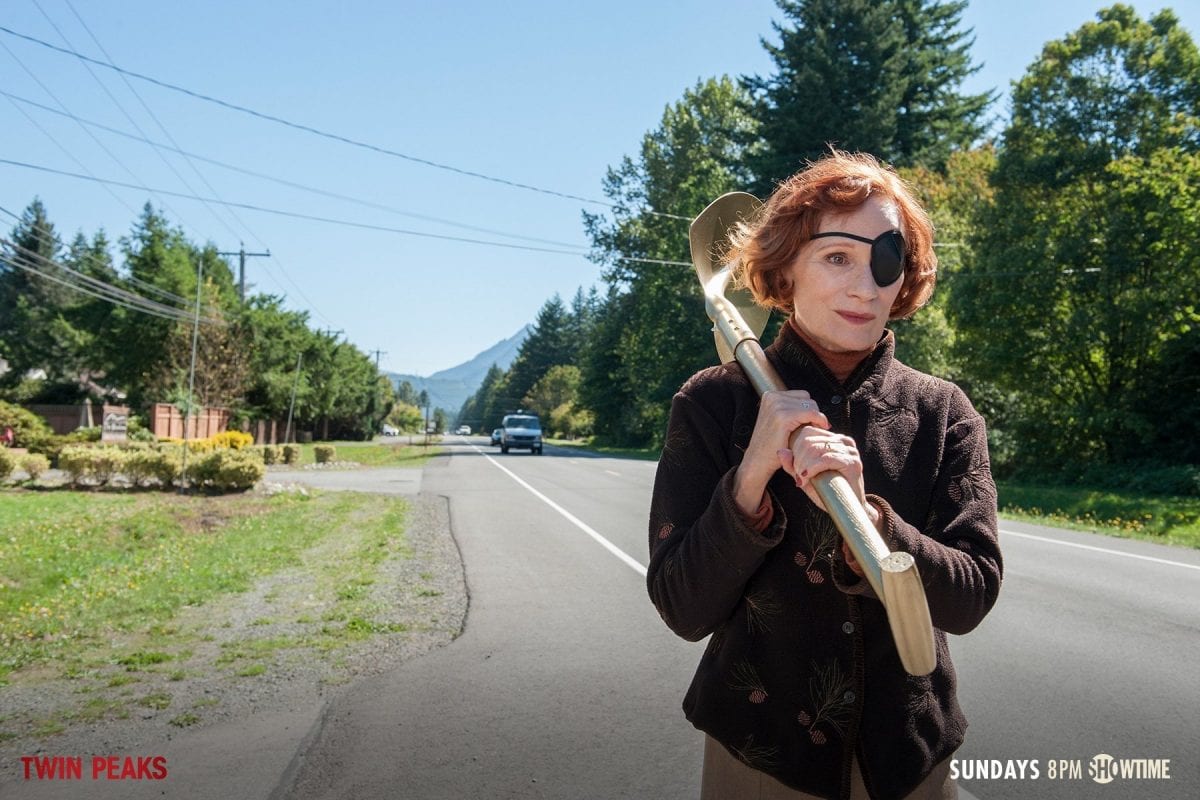 Frost wants people to take personal responsibility and exercise their right to protest and vote to help change the world. To be, as he puts it in Final Dossier, a traveler rather than a passenger. Lynch wants people to find balance through Transcendental Meditation to push the fear out of themselves. Both of these concepts are laced all through Season 3.
Frost wants people to take personal responsibility and exercise their right to protest and vote to help change the world. To be, as he puts it in Final Dossier, a traveler rather than a passenger. Lynch wants people to find balance through Transcendental Meditation to push the fear out of themselves. Both of these concepts are laced all through Season 3.
It’s as if Lynch and Frost are demanding the Twin Peaks viewers to consider how they can help. They are issuing a call to action, and Twin Peaks Season 3 is a shovel for our use if we care to accept it.
Why? It’s Lynch and Frost’s way to thanks us for sticking around “and keeping the fire burning.” If it weren’t for us keeping a fanbase alive despite having zero merchandise for over 20 years, Showtime may not have thought there’d be enough built-in audience to greenlight such a storytelling gamble. We helped keep the road open for more Twin Peaks, and Lynch and Frost wanted to thank us by giving us something in return that was worth all our time.
However close I am to their authorial intent, I feel now it’s my turn to say thank you to David Lynch and Mark Frost. Today is my birthday, so perhaps I’m more reflective than normal, but with Twin Peaks celebrating its 30th anniversary in a few days, it’s a good time to be reflective. Twin Peaks is my Elvis. I will be homaging it forever. It’s taken my mind to more creative possibilities than any other single piece of media, and if leaving my light on for it had the tiniest part in helping bring it back after it was dead as a doornail, then I couldn’t be happier. I’m so thankful I got to say thank you again.



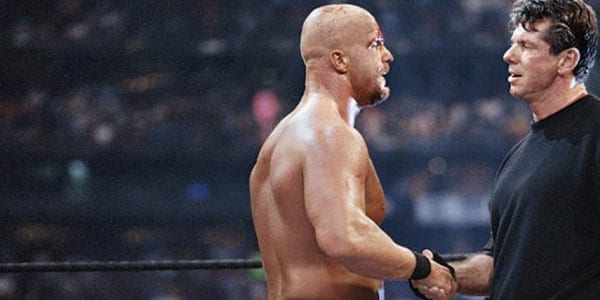

This is fantastic, so many great points and a much needed reminder to look at the whole picture. I’ve spent a lot of time focused only on the themes of trauma and broken families, and it’s so nice to remember all the beautiful moments this show offered. Especially love the idea about the personal golden shovels.